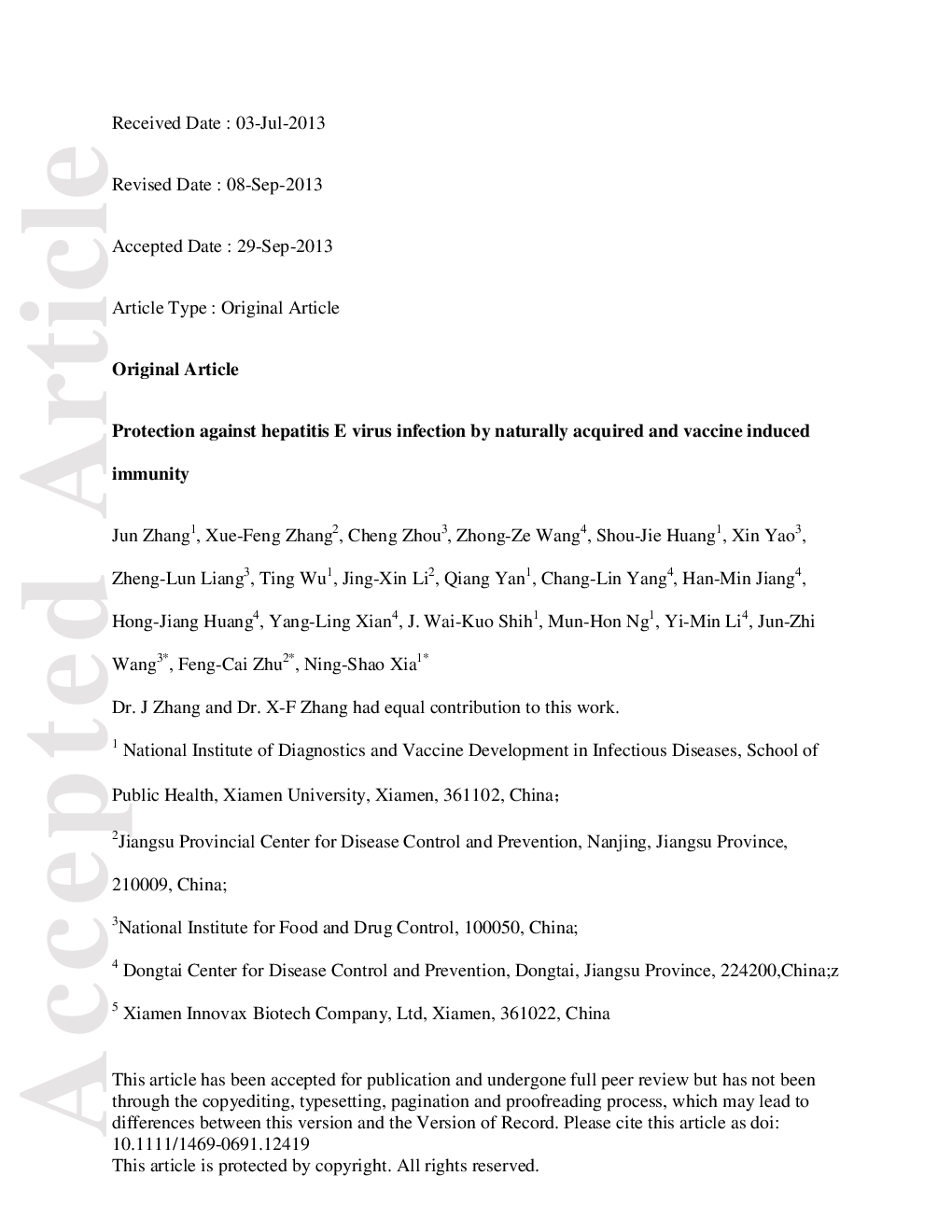| Article ID | Journal | Published Year | Pages | File Type |
|---|---|---|---|---|
| 6130537 | Clinical Microbiology and Infection | 2014 | 25 Pages |
Abstract
Immunity acquired from infection or vaccination protects humans from symptomatic hepatitis E. However, whether the risk of hepatitis E virus (HEV) infection is reduced by the immunity remains unknown. To understand this issue, a cohort with 12 409 participants randomized to receive the hepatitis E vaccine Hecolin® or placebo were serologically followed up for 2 years after vaccination. About half (47%) of participants were initially seropositive. A total of 139 infection episodes, evidenced by four-fold or greater rise of anti-HEV level or positive seroconversion, occurred in participants who received three doses of treatment. Risk of infection was highest among the baseline seronegative placebo group participants (2.04%). Pre-existing immunity and vaccine-induced immunity lower the risk significantly, to 0.52% and 0.30%, respectively. In conclusion, both vaccine-induced and naturally acquired immunity can effectively protect against HEV infection.
Related Topics
Life Sciences
Immunology and Microbiology
Microbiology
Authors
J. Zhang, X.-F. Zhang, C. Zhou, Z.-Z. Wang, S.-J. Huang, X. Yao, Z.-L. Liang, T. Wu, J.-X. Li, Q. Yan, C.-L. Yang, H.-M. Jiang, H.-J. Huang, Y.-L. Xian, J. W.-K. Shih, M.-H. Ng, Y.-M. Li, J.-Z. Wang, N.-S. Xia,
